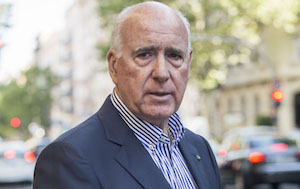The pandemic-interrupted passage of the new Spanish laws on the advertising of online gambling has resumed to successive controversies.

Spanish industry specialist Eduardo Morales of iGamingCo, has dissected the main aspects of the proposed regulation and issued his own interpretation.
The need for the Spanish Government to resume the regulation of advertising for the online industry was urgent, but not, he maintains appropriate at a time when thousands of Spaniards remain in intensive care, many are losing their lives and parts of the country are drifting back into lockdown.
“We have three million temporarily laid off work and one million made redundant; 20 per cent of workers unemployed and hundreds of thousands of them still unable to collect unemployment benefit after three months; companies going bankrupt; gross internal product down 5.2 per cent and estimated to drop by 11 per cent by the end of the year. This is a state of emergency, but the latest words from our president is that everyone should go out and enjoy freedom again!”
The industry, he said, is still viewed in official circles, and by the media, as “despicable individuals legally operating in online gambling and betting”, yet, he argues 0.3 per cent of consumers may suffer the consequences from problem gambling.
Morales therefore argues for a sense of proportion. “Without consultation with an industry that is self-constrained and protecting the vulnerable with strong measures of responsible gambling, the Ministry of Consumer Affairs decides that a crusade against a properly regulated gambling activity is a priority, restricting or prohibiting advertising and promotions,” he said.
He points out that this action is against private companies and ignores the highest volume of gambling in Spain, which is in public gaming such at the National Lotteries SELAE and charity lotteries through ONCE.
The amended draft of the proposed new law, updated two weeks ago, had more restricted content than the first draft in February.
He says that there are many worrying aspects of the latest version of the draft, but it is clear that there is discrimination against private gambling while ring-fencing ONCE and SELAE. This, Morales maintains, flies in the face of fundamental rights set out in Article 38 of the Spanish Constitution and in the European Charter of Fundamental Rights.
He adds: “The online gambling and betting business in Spain is a legally-established activity, regulated under a praised model as far as access, activity control and protection of the vulnerable are concerned. The Spanish digital industry is highly regulated already.”
The European Commission in 2019 warned its member states that they should promote laws that gave the same treatment to both private and public gambling, says Morales. “This has clearly been infringed by the Spanish Government through the Ministry of Consumer Affairs and the EU must act against this undermining of free competition.”
He argues that the authorities’ proposals would do no more than encourage illegal operating, just as it did during the lockdown period when the advertising and promotions of the legal industry were interrupted. “Online gaming and betting in a regulated market environment has to compete with the offshore offer with a fair and competitive advertising, commercial promotions, fair taxation scenario, allowing them to offer competitive prices and products to discourage uncontrolled offshore alternatives.”
Under the proposals, he said, advertising and promotion of online gaming and betting could only be provided between 1am and 5am, effectively stopping in-play betting.
The draft prevents famous people from being recruited to promote gaming, including actors, sporting heroes and other popular personalities. The authorities would dictate unilaterally who would fit the characteristics on a case-by-case basis.
Sponsoring activities, sports events or broadcasts would be banned; and brand images, trade names or promotional messages of the sponsor could not be used in events or in the titles of sports facilities or venues. Specifically, no advertising of gambling would be permitted on sports jerseys.
The proposed regulation also prevents the “capture” of customers. Promotions would have to be limited to consumers who have had a gambling account open for at least a month, have been verified via documentation and have made at least three deposits.
Pinpointing individual instances of inconsistencies, Morales points out that restricting advertising in a limited timeframe of 1am to 5am by the private industry – not applicable to the public lotteries – should be challenged under the relevant competition regulations in both Spain and the European Union.
The restrictions on marketing and branding tools such as sports sponsorship, he says, is no more than “the cherry on the pie”.
“The law establishes that sponsorship or branding on sports jerseys, shirts or kits would not be permitted. Whoever wrote that was surely aware of what the implications would be. We cannot even have a stadium named after a brand,” he said.
He said: “Spain is no different from any other EU country and has most of the teams in the top two divisions of football utilising the name of a brand as a partner and most of them are in betting and gaming. That would be gone within three months of the proposals becoming law in September of this year.”
Not permitting welcome bonuses to gaming sites or other “player capture promotions” would be very damaging to the industry.
He concludes: “We shall see what happens with this draft during its transit in Brussels and to what degree the European Commission is willing to intervene in protecting the freedom of competition.
“This draft does not protect the vulnerable, nor offer more guarantees to consumers and it will cause immense damage to operating companies. Set against that, the offshore illegal gaming sites will thrive and have no compliance obligations or protections for players.
“There is always hope that common sense and rationality will prevail and that the common interest and fundamental rights of free enterprise will be preserved.”

